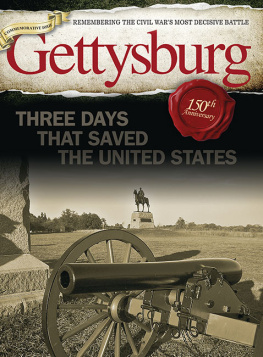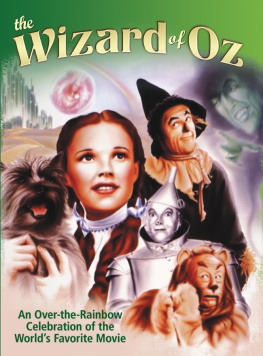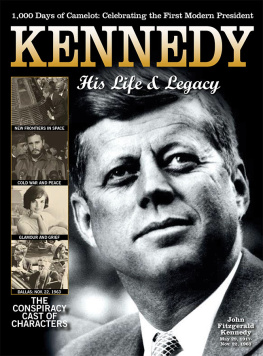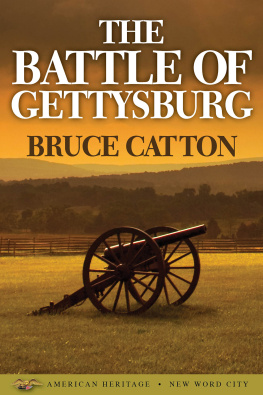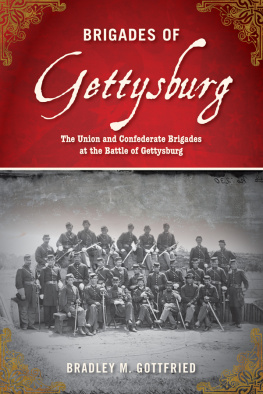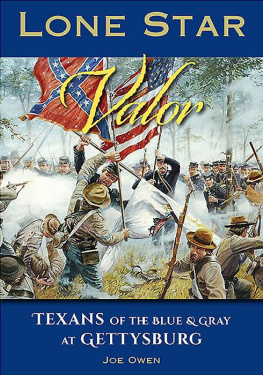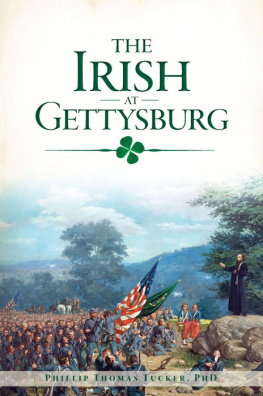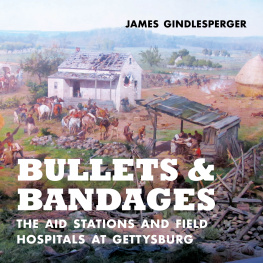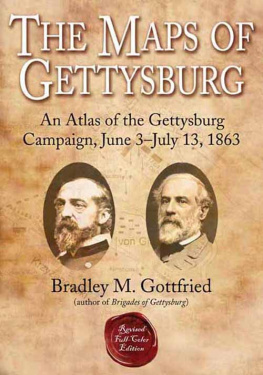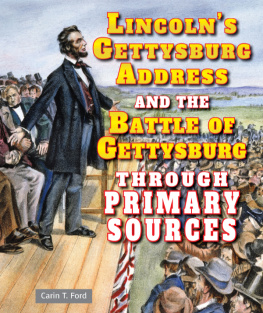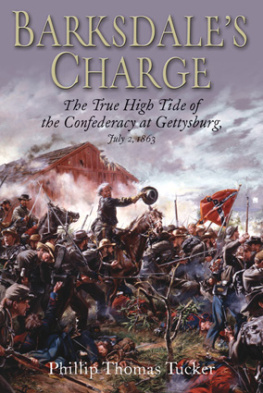Gettysburg Battlefield

Today Pennsylvania Railroad
A Life Spared
Alexander Newtons story captures the vagaries of war.
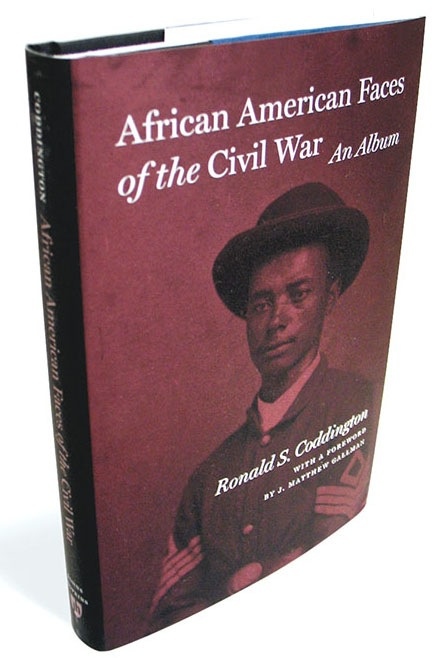
The exact number of casualties at Gettysburg is unknown. Historians estimate that each side suffered between 20,000 and 25,000 casualties men killed, wounded or missing. The total number of dead from the Civil War as a whole is likewise the subject of debate: Somewhere between 600,000 and 750,000 soldiers died during the course of the war, out of about 3 million total soldiers North and South who fought.
The numbers are at once awe-inspiring and abstract. The difference between a long life as a veteran and death as a soldier was, of course, mostly up to fate.
The following excerpt from African American Faces of the Civil War presents a thumbnail sketch of one mans life. He was on his way south and would likely have fought at Gettysburg but was sent to New York instead. Later he watched Lincolns triumphant entrance into Richmond. Personal tragedy hit later in his life. He died in 1921 at the age of 83, 60 years after he first went to war.
I was born under the regime of slavery, a free child, my mother being a free woman, explained North Carolinaborn Alexander Newton, My father was a slave, so that in my family, I learned what slavery was. I felt its curse in my bones and I longed for an opportunity and the power to play the part of a Moses in behalf of my people. I suppose this was the wild dream of every child born during slavery.
Flash forward to April 12, 1861. The bombardment of Fort Sumter signaled the start of war and for Newton an opportunity to realize his boyhood dream. My bosom burst with the fire of patriotism for the salvation of my country and my people, he declared. At the time he lived in Brooklyn, New York, headquarters of the Thirteenth New York National Guard Infantry. It mobilized for duty within days after the attack. Newton could not enlist because of the color of his skin. The United States was not taking Negro troops, he noted, without further comment, in his autobiography.
The policy did not stop him. On April 23, 1861, when the Thirteenth left for Washington, D.C., to protect the capital, Newton went with them. He may have served as an officers valet or in another supporting role.
The regiment made it as far as Annapolis, Maryland, when federal authorities ordered it to Baltimore to maintain law and order among the citys pro-South populace. The New Yorkers left Baltimore in August 1861, after the expiration of their three-month term of enlistment. The Thirteenth was activated again for brief stints in 1862 and 1863. Evidence suggests that Newton accompanied the regiment both times.
The latter mobilization, organized to resist the Confederate invasion of the North that ended with the Battle of Gettysburg, ended prematurely after New York State officials recalled the regiment to quell draft riots in New York City. The Thirteenth arrived a day after the angry mobs were broken up. Violent protestors intent on harassing blacks still roamed the streets, however. Fearing for his life, Newton fled the city.
He wound up in New Haven, Connecticut. By this time the Emancipation Proclamation and a series of congressional acts enabled black men to join the army. Newton enlisted in the Twenty-ninth Connecticut Infantry in December 1863. He received an appointment as second sergeant in Company E.
The regiment left for South Carolina in early 1864. It passed through Annapolis, where Newton had been three years before as a civilian attached to the Thirteenth New York. This time he wore a blue uniform. I was in the full realization of what it meant to be again in the South, not a cringing black man, but a proud American soldier with the Union and Old Glory behind, before, over and under me.
His return to the South opened old wounds as he was reminded of injustices committed against him and others. I confess that I had a burning desire to eke out some vengeance which for years had been pent up in my nature, he admitted. His better angels prevailed. But, of course, from the Christian standpoint, this was all wrong. I was all wrong. I was then on a higher mission than trying to get personal vengeance on those who had mistreated me and mine. I was fighting for the liberty of my people and the righting of many wrongs that belonged to their social and religious welfare.
In the summer of 1864, the Twenty-ninth moved to Virginia and found itself on the front lines near Petersburg. Within days the regiment went into action at Deep Bottom, where Newton came close to death. I remember a twenty-pound cannon ball coming towards me, I could see it distinctly through the smoke. It looked like it had been sent especially for me. He said a quick prayer. When the ball was within about three feet of me it struck the ground and bounded over my head.
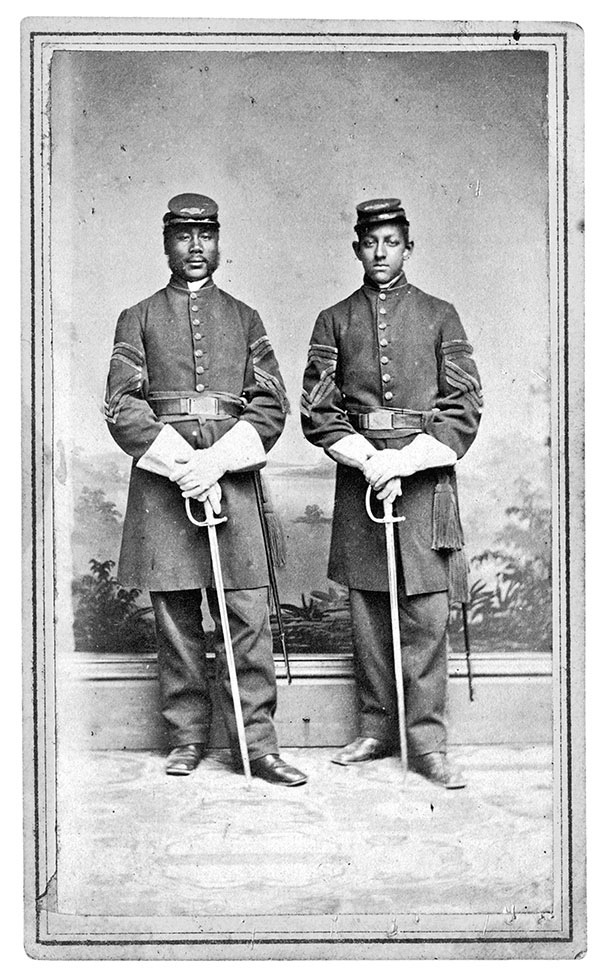
This carte de visite image of Alexander Newton, left, and Daniel Lathrop is engraved on a monument honoring the 29 th Connecticut Volunteer Infantry in New Haven, Connecticut.
This was the first of many narrow escapes from death for Newton. Perhaps his closest call occurred on August 29. On that day he stood in the trenches, talking with his comrades, when an artillery shell struck the ground and exploded. It killed the private next to him. The force of the blast threw sand and dirt into Newtons face and temporarily blinded him. He never fully recovered his eyesight and later wore glasses.
About this time, he became a quartermaster sergeant and joined the regimental staff. He was serving in this capacity on April 3, 1865, when the Twenty-ninth numbered among the first Union forces to enter Richmond after Confederate troops withdrew. The next day, Abraham Lincoln visited the fallen Confederate capital. Newton noted, We were present in Richmond when President Lincoln made his triumphal entry into the city. It was a sight never to be forgotten.
The Twenty-ninth left the Richmond area about two weeks later and, after a brief stint guarding prisoners at Point Lookout, Maryland, sailed for Texas. In October 1865, the regiment mustered out of service and returned to New Haven.
Newton rejoined his wife, Olivia, the daughter of Weekly Anglo-African newspaper editor Robert Hamilton, and his young daughter and son. He abandoned his profession as a mason and became a minister in the African Methodist Episcopal Church. After Olivia died, in 1868, he tended to the faithful at various places across the country. In Little Rock, Arkansas, he met a Sunday school secretary named Lulu Campbell. They married in 1876. Newton fathered another boy and girl with Lulu.
Newton rose to become an influential and respected church elder based in Camden, New Jersey. At the pinnacle of his career, personal tragedy devastated him. Over a six-year period beginning in 1899, he suffered the deaths of both of his daughters, his younger son, and his mother. He paid tribute to his family in a 1910 book, Out of the Briars . The title, he explained in the preface, is a metaphor that represents his emergence, torn and bleeding, from the thorns and briars of prejudice, hatred, and persecution of slavery.
Newton lived until age eighty-three, dying of heart problems in 1921.
In 2008, eighty-seven years after his death, families of the veterans in the Twenty-ninth dedicated a monument to the regiment in New Haven. It is composed of eight stone tablets marked with the names of those who served. The tablets surround an obelisk. Engraved on one face of it is a portrait of Newton and fellow quartermaster sergeant Daniel Lathrop taken from this carte de visite image.
Next page
